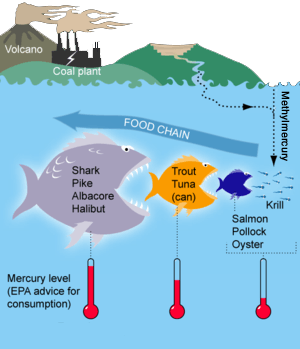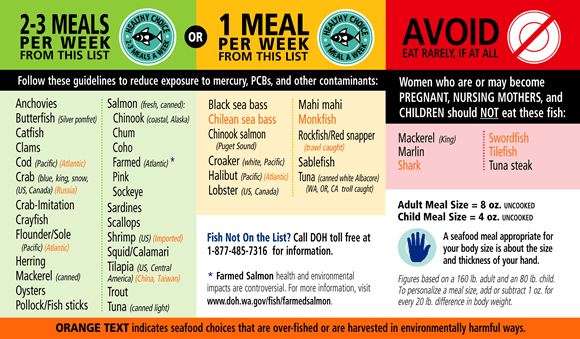 Mercury (Hg) is a ubiquitous and naturally occurring heavy metal. Regrettably, very significant amounts of it are released into the environment due to human activities. Most mercury pollution is produced by coal fired power plants and other industrial processes such as chloride and sodium hydroxide production. Although some mercury compounds are relatively inert, others are extremely toxic to living animals. Organic forms like methylmercury accumulate in biological tissues (bioaccumulation) and take very long to be discarded. Aquatic environments are significantly affected by mercury bioaccumulation where marine mammals and long-lived piscivorous fishes have been reported to contain mercury levels over a million-times that of the surrounding water body.
Mercury (Hg) is a ubiquitous and naturally occurring heavy metal. Regrettably, very significant amounts of it are released into the environment due to human activities. Most mercury pollution is produced by coal fired power plants and other industrial processes such as chloride and sodium hydroxide production. Although some mercury compounds are relatively inert, others are extremely toxic to living animals. Organic forms like methylmercury accumulate in biological tissues (bioaccumulation) and take very long to be discarded. Aquatic environments are significantly affected by mercury bioaccumulation where marine mammals and long-lived piscivorous fishes have been reported to contain mercury levels over a million-times that of the surrounding water body.
The main source of human exposure to mercury is through consumption of contaminated fish or shellfish with methylmercury. Methylmercury can be absorbed by the digestive tract and enter the blood stream. Mercury accumulation in the body can be a serious health threat, especially for young children and pregnant women. Once in the circulatory system, it can accumulate in the brain and damage the central nervous system. Methylmercury interferes with nerve cell differentiation and cell division. Fortunately, this compound is removed from the body over time; however it can take up to a year for mercury levels to drop significantly in the human body. Additionally, technology advancements (such as Atomic Fluorescence Spectroscopy) have led to scientific methods to analyze Mercury levels, which are benefical for several industries.
Sharks, swordfish, king mackerel, and tilefish contain very high levels of mercury (>1 ppm) among commonly consumed fish. Tuna is however the most common source of mercury exposure in N. America despite not having the highest concentration of mercury; since it is so commonly consumed it poses the greatest health risk.
I do not mean to scare you with these facts or try to stop you from visiting your favorite sushi restaurant in Vancouver. After all, fish ranks high in nutritional value (Omega 3 fatty acids, high in protein, low saturated fats, etc…) therefore the benefits of eating fish may outweigh many of the potential risks. The greater health concern for mercury exposure is not to an adult but to a developing fetus.
The take home message for me is: watch your tuna consumption, avoid shark, swordfish, king mackerel, and tilefish if you are pregnant and finally keep a balanced diet as key to proper nutrition.
Note: Mercury is not the only thing to consider when eating fish, always try to select fish which are ethically harvested and try to avoid species which are over fished



